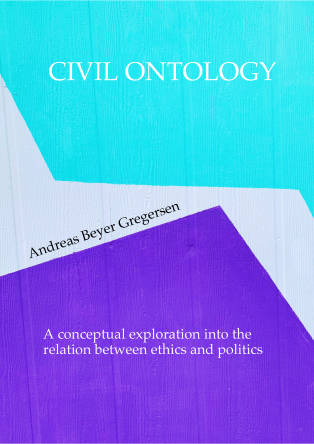Civil ontology: A conceptual exploration into the relation between ethics and politics
Nøgleord:
Political PhilosophySynopsis
Civility is a concept that seems to point toward both the highest aspirations and the deepest confusion. It is often conceived by theorists as a normative ideal of political ethics; as, for instance, a communicative virtue within theories of deliberative democracy or as a culture of active citizenship within republican thought. But it is also a contested concept that for others points to a set of questionable norms that can exclude marginalized groups in society and prevent progressive change from happening. In addition, its use and meaning are further complicated by discussions about related expressions such as civil resistance, civil disobedience, and civil society. In this thesis, the overall question is how we can understand the relation between ethics and politics through the concept of civility. To provide an answer to this question, I develop what I will call a 'civil ontology' by both exploring the reach of the concept and providing a broad but meaningful conception that interprets civility as the dynamic relation between ethics and politics. In this sense, I propose that civility provides us with a valuable interpretation key to this relation.
The thesis consists of two main parts. In the first part of the thesis, I begin by analyzing and discussing how particularly liberal and critical theoretical conceptions interpret civility and what it might say about the relation between ethics and politics. Through this analysis, it becomes increasingly clear that civility points to some form of dynamic relation between ethics and politics. The second part of the thesis builds upon these results and argues that civility can be meaningfully reconceptualized as a type of normative orientation whose defining feature is internal conflict but through this distinct way of being normative continuously connects ethics and politics. Overall, I will argue that we can thereby conceive civility as a distinct mode of normativity, irreducible to ethics and politics, that is inherently dynamic due to internal conflict. Civility constitutes the relation between ethics and politics as such because it is something distinct that develops 'in-between'. As such a transformative mode of normativity, civility can also be discussed and reflected upon anew regarding its role and value in different contexts. In this relation, I will suggest that civility is instrumentally valuable because it helps us to reflexively mediate and thereby transform the relation between ethics and politics. Even though there is no guarantee of this, civility tends to facilitate a reflexive mediation between ethics and politics. Thus, the civil ontology that is developed throughout this thesis conceives civility as a continuous development relating ethics and politics together.

